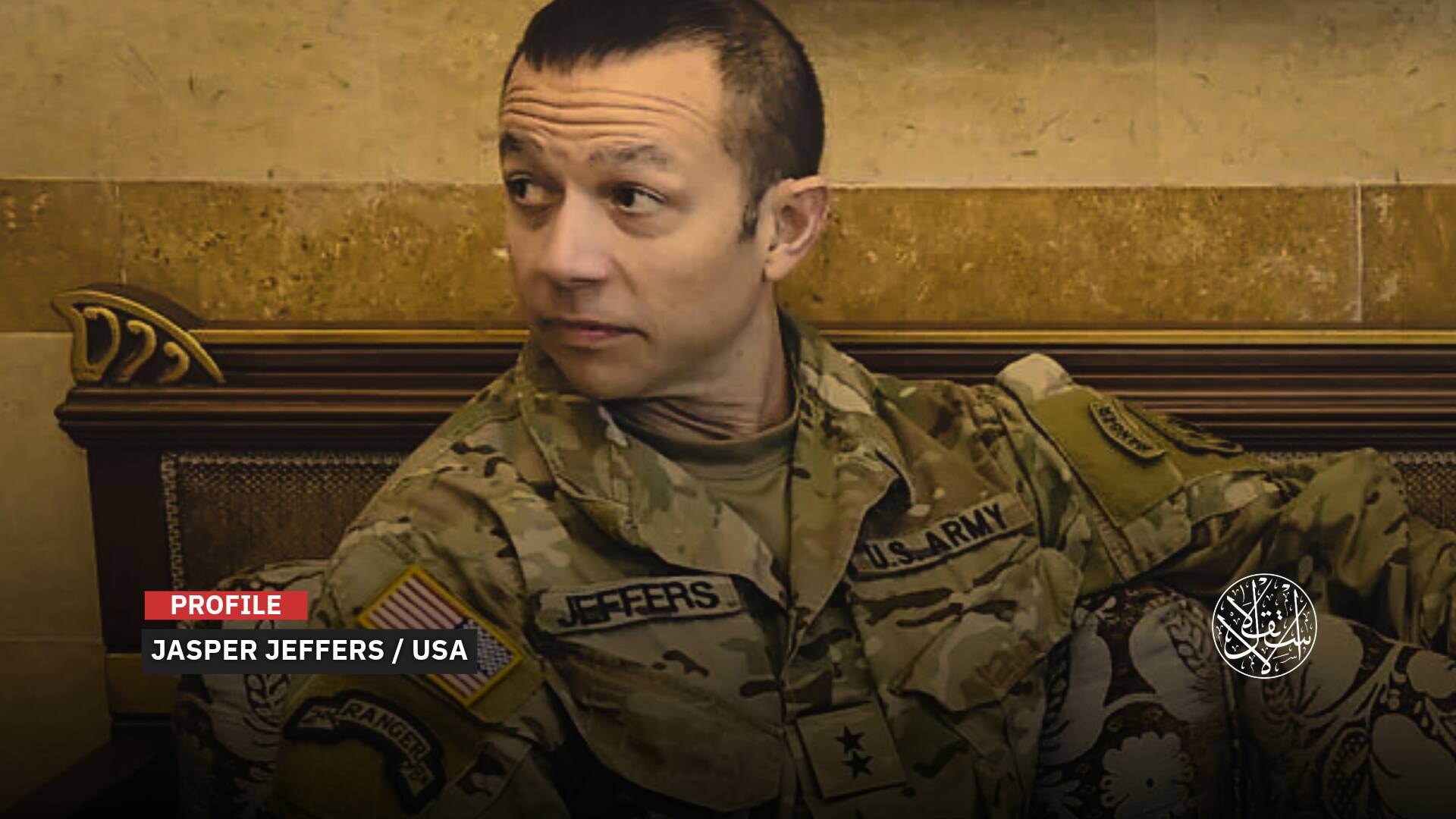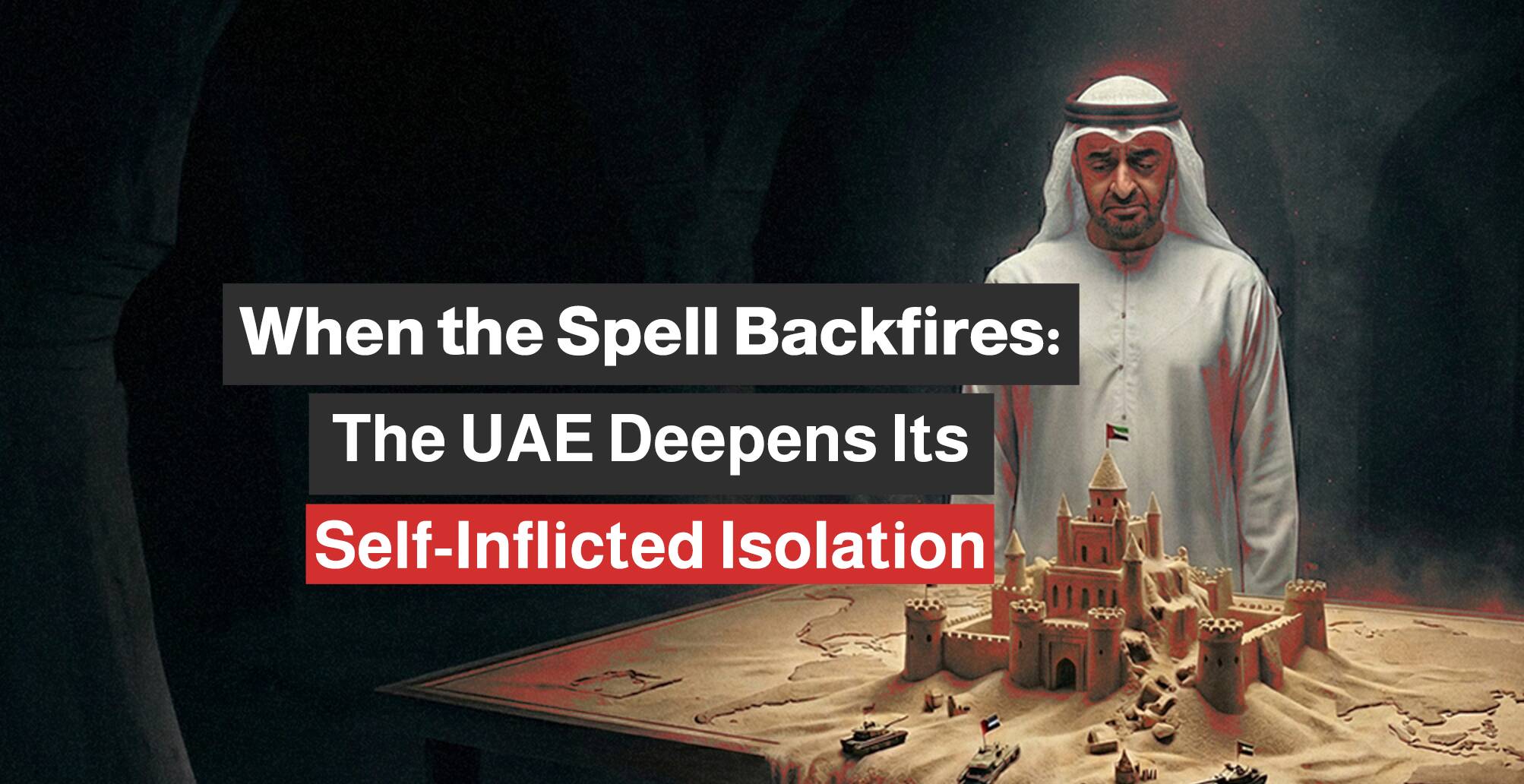Macron Playing with Fire, Putin Ready with Nukes: Is a Russia-West Confrontation Imminent?

Fears of a second Donald Trump presidency have awakened Europeans.
As the situation on the front line in eastern Ukraine deteriorates and Russia gains the upper hand, France has hinted once again at the possibility of sending ground troops to Ukraine to halt the Russian advance.
In an interview with The Economist, French President Emmanuel Macron discussed details of his plan to prevent Europe's "brutal" demise, reiterating his controversial stance on the potential deployment of ground forces to Ukraine.
On May 2, 2024, Macron stated, "If the Russians were to break through the front lines, and if there were a Ukrainian request - which is not the case today - we would legitimately have to ask ourselves this question.”
"At the NATO summit in the summer of 2022, we all ruled out the delivery of tanks, deep-strike missiles, aircraft. We are now all in the process of doing this, so it would be wrong to rule out the rest," he added.
Preventing a Russian Victory
Macron sparked controversy at the end of February 2024 when he suggested that the deployment of Western troops to Ukrainian territory should not be excluded. It is clear that most European countries, as well as the U.S., are hesitant about this idea.
In his interview with the British magazine, Macron asserted that Russia has entered a logic of total war and must be prevented from winning in Ukraine, or Europeans will not be safe.
In this third year of the war, the situation appears uncomfortable for the West in Ukraine, as the Russian army is on the offensive almost everywhere along the eastern front.
Conversely, Ukraine's ground-to-air defense system is receiving very few supplies, which is why long-range attacks are severely damaging vital infrastructure, while Western support is trickling in slowly.
Consequently, Russian forces have seized more than 500 square kilometers of territory from Ukrainian forces since the beginning of 2024, according to Russian Minister of Defense Sergei Shoigu.
Paris's escalation towards Moscow did not go unanswered. Russia warned France that if Macron sends troops to Ukraine, the Russian army will consider them legitimate targets.
Russian Ministry of Foreign Affairs spokeswoman Maria Zakharova told reporters, "It is natural for Macron himself to interpret this statement with the aim of creating strategic uncertainty for Russia."
"If French troops appear in the conflict zone, they will inevitably become targets for the Russian armed forces. It seems to me that Paris already has evidence of this."
Zakharova clarified that Russia already sees an increase in the number of French nationals killed in Ukraine.
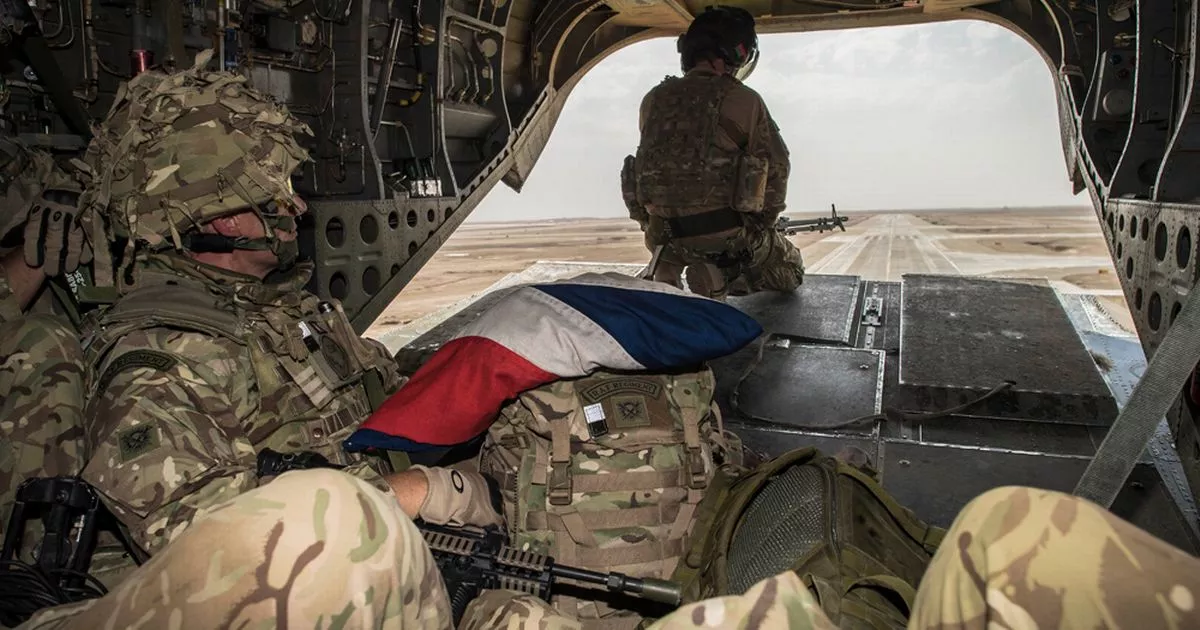
Russia has announced military exercises that include training on the deployment of tactical nuclear weapons in response to threats from France, Britain, and the U.S.
The Russian News Agency TASS quoted Sergei Ryabkov, the Russian Deputy Foreign Minister, warning Western adversaries that Moscow feels compelled to bolster its nuclear deterrent due to what it perceives as their "escalatory" trajectory.
Ryabkov added that despite this, Russia will not change its nuclear doctrine, which allows for the use of nuclear weapons in the event of an existential threat to the state.
The issue of sending Western troops to Ukraine, proposed "legitimately" by France, remains contingent on whether Russia breaches the Ukrainian front lines and if Kyiv makes such a request.
In contrast, German Chancellor Olaf Scholz, who has cautioned against dragging NATO into a direct conflict with Russia, quickly ruled out any deployment of German or allied forces in Ukraine.
Similarly, the U.S., Ukraine's largest supporter, stated it will not deploy ground troops but has agreed to send long-awaited military aid worth $61 billion to Kyiv.
In February 2024, France pledged to deliver more weapons, train soldiers in Ukraine, and send up to three billion euros ($3.21 billion) in military aid.
France Presents Options
Critics in Paris warn against sending ground troops to Ukraine, fearing that conflict between Russia and NATO will become inevitable if European members of the alliance deploy their soldiers to fight in Ukraine.
The idea of sending troops has been taboo, especially as NATO seeks to avoid being drawn into a broader war with Russia.
However, currently, nothing prevents NATO members from joining such a French-led initiative individually or in groups, although NATO itself would only participate if all 31 members agreed.
Domestically in France, Macron's statements have sparked further debate, with the president appearing increasingly isolated.
His government later sought to clarify his remarks, with French Foreign Minister Stephane Sejourne stating that the president was considering sending troops for specific tasks such as mine clearance, on-site weapons production, and cyber defense.
Sejourne told French lawmakers, "This might require a military presence on Ukrainian soil, without crossing the threshold into combat."
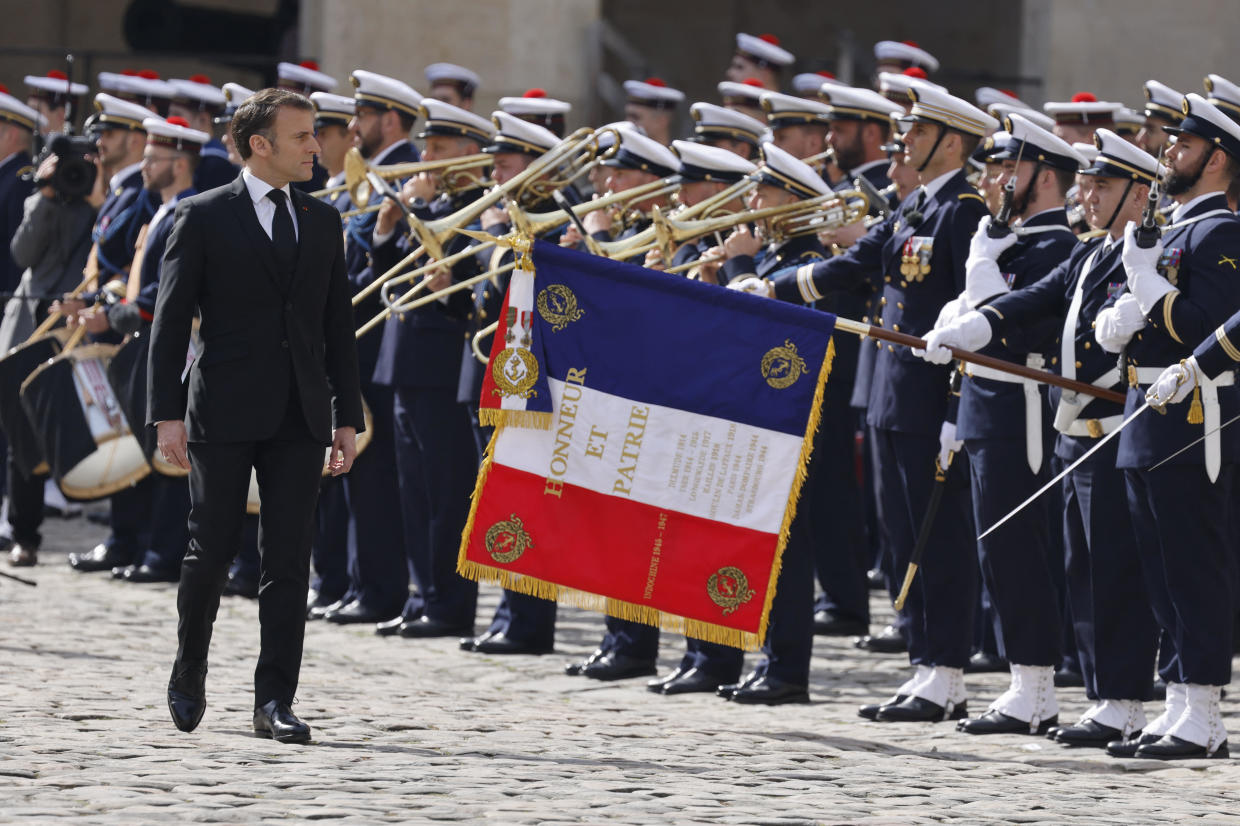
While Ukraine's primary goal is to withstand the war, the Ukrainian side lacks manpower while fighting a state with triple its population.
There are concerns that these conditions will embolden Moscow to act more confidently, not only in Ukraine but perhaps also in Moldova and the South Caucasus.
During an interview with The Economist published on May 3, 2024, Deputy Head of Ukraine’s military intelligence agency, Major General Vadym Skibitsky, addressed the threat Moscow poses to other European countries.
“The Russians will take the Baltics in seven days,” he said, somewhat implausibly. “NATO’s reaction time is ten days,” Skibitsky said.
The Ukrainian intelligence official's remarks echo previous warnings about the Kremlin's potential initiation of conflicts in Baltic states. According to the Institute for the Study of War (ISW), Putin has appeared to exert effort to weaken NATO through provocative rhetoric regarding Baltic states — Lithuania, Latvia, and Estonia — all of which are NATO and EU members.
On the other hand, Paris is increasingly concerned about the hybrid war waged by Russia, which reports suggest has intensified against France and other EU members.
“France has been a particular target of hybrid attacks, such as cyber and disinformation. This probably helped Macron come to terms with the reality of a more aggressive Russia,” said Mathieu Droin, a visiting fellow in the Europe, Russia, and Eurasia program at the Center for Strategic and International Studies, and former official at the French Ministry for Europe and Foreign Affairs.
Macron also wants to strengthen his vision for Europe's strategic independence from Washington and demonstrate Europe's ability to support Kyiv without relying on the U.S., especially in light of the possibility of Donald Trump winning a second presidency.
“Macron’s hardened stance – at least rhetorically – on Ukraine may be a further attempt to ameliorate concerns in the east of the continent,” Artin DerSimonian, a research fellow in the Eurasia programme at the Quincy Institute for Responsible Statecraft told Al Jazeera.
“Whether or not Macron follows through with his rhetoric, he has certainly won favor in the eastern part of the continent, which may likely prove useful in future French strategic plans.”
“Such a realization across the continent plays into Macron’s push for strategic autonomy.”
According to some observers, some Eastern and Central European countries, most vocal and supportive of Ukraine, have warmly welcomed Macron's shift.
Macron's shift appears to have begun in late May 2023 when he spoke at a security conference hosted by the Globsec think tank based in Bratislava, Slovakia. He acknowledged in his speech that Paris had failed to adequately listen to NATO members' concerns about Russia and Ukraine.
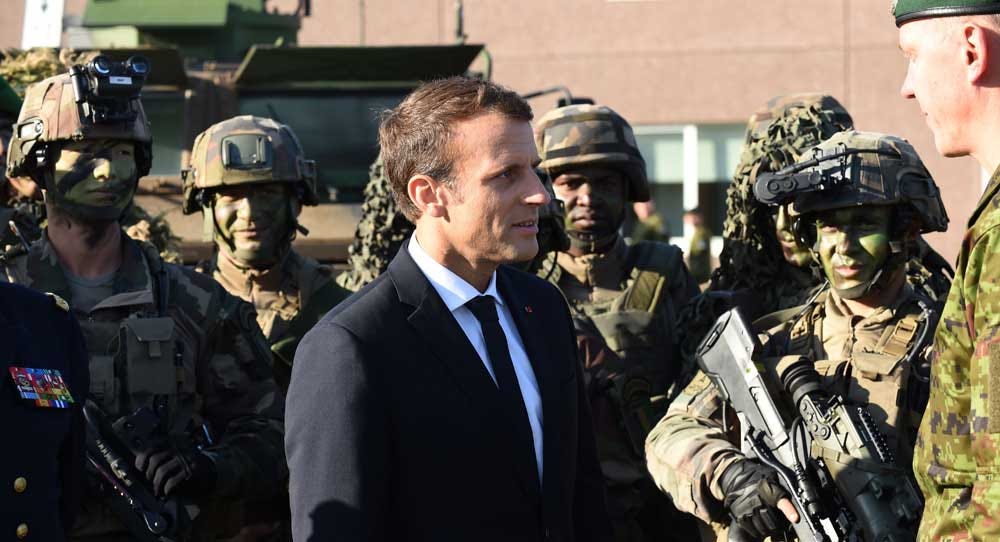
Currently, observers emphasize that there is no immediate need for Western forces to engage in combat roles in Ukraine.
Western assistance or that of other allies in border security, logistics, and administration can free up a vast number of Ukrainian forces from additional support tasks, allowing the country to better deal with frontline challenges and reclaim territory.
However, the actual deployment of Western forces on the ground in Ukraine provides Kyiv with much-needed morale and battlefield capability, according to experts.
So far, Ukrainian fighters have been striving to confront the coordinated assault by larger and better-equipped Russian forces.
However, achieving complete victory by Russia requires the military occupation of all of Ukraine, a goal that Russian armed forces are far from accomplishing.
If Ukraine were to lose the war, the Russian president would be tempted to continue advancing into Eastern European territories.
Therefore, if France were to unilaterally decide to send ground forces to Ukraine, it would act as a stumbling block for the Kremlin's progress on Ukrainian territory.
However, France will not risk such a military campaign without the support of key partners in NATO.
In this context, analyst Craig Hooper, as written on Forbes, argues that any open theoretical discussion of Western military intervention in Ukraine is a healthy discussion.
So, while Macron's aspirations may be somewhat shocking to some, they are preparing NATO for tough options in the future. With Russia's readiness for war, there is no legitimate reason to expect Russia to stop at Ukraine's borders if it seizes Kyiv, according to the analyst.
By making on-the-ground intervention in Ukraine a real and tangible option, the likelihood of reaching a broader level of commitment in wartime will force Europe and other countries to take a serious stance on exploring less directly confrontational options, such as addressing the growing European problem. The faltering approach to implementing sanctions and seizing Russian assets.
“If Europe is unwilling to take the necessary economic steps to pressure Russia effectively to end its invasion without threatening war, Europe's only options will be either direct engagement in combat or surrender to Russian-style tyranny,” he concluded.






